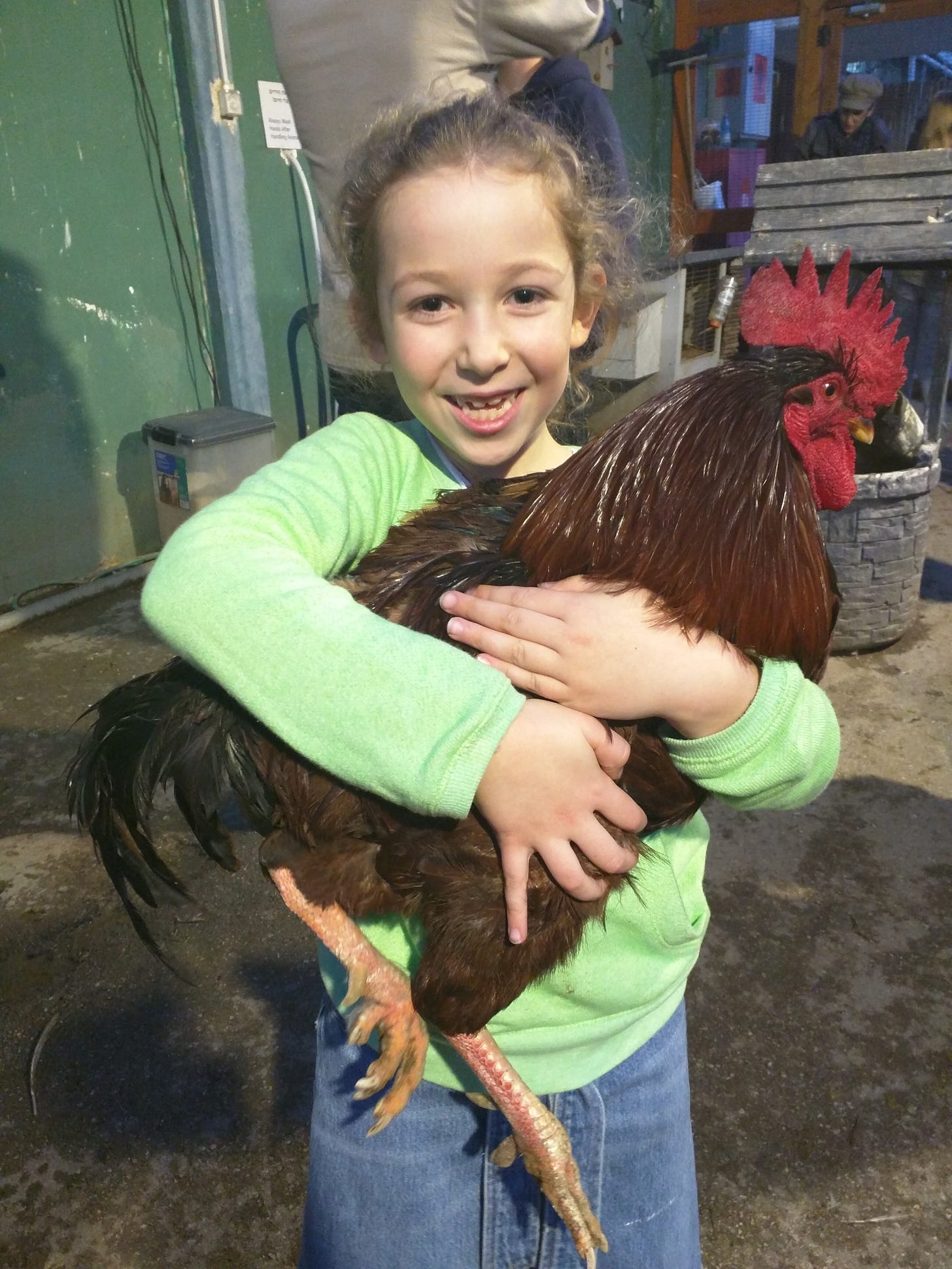The Chicken Swing
The controversy around Kapparos
(Adapted from my book Man & Beast, which is sadly long out of print.)
I love chickens. I love them so much I could eat them! I’ve raised numerous chickens over the years, both at home and at the Biblical Museum of Natural History, where it’s magical to watch children cuddling them and relating to them as real living creatures. But at this time of year, chickens appear in a different context.
On the days preceding Yom Kippur, some have a custom to designate a chicken as a symbolic scapegoat for their own sins. They recite a statement designating it as such while passing it around their head, and the bird is then slaughtered. Many have the custom of then giving the chicken to the poor. (Some have the custom to use money for the procedure instead.)
Two of the early authorities, Rashba and Ramban, strongly protest against this custom, considering it to fall under the prohibition of “following the ways of the Emorites.” The Shulchan Aruch likewise disapproves of this custom. However, Rabbi Moshe Isserliss, in his glosses to the Shulchan Aruch, notes that since this is an ancient custom that has widespread support, one should not dissuade people from it. And indeed, it does not seem conceptually so far removed from the se’ir l’Azazel, or even korbanot in general.
But what of the aspect of causing suffering to the birds? Essentially, there is no reason why it should be any different to any case of slaughtering a chicken to eat. Passing a bird around one’s head can certainly be done in a way that does not cause undue distress, although unfortunately inexperienced people may not know how to handle it in such a way.
The bigger problem lies in how the entire process is commonly facilitated nowadays. In pre-war Europe, a person would simply take a chicken from his yard, or from the local farmer. Today, the chickens are packed en masse into crates and shipped to city centers where they wait for people to take their turn in performing the kapparos process. This commonly results in the birds being kept in horrifically cramped conditions without food, water or shade.
While it is permitted to cause suffering to animals for material or spiritual benefit, the suffering in this case is quite needless. It would seem that causing needless suffering to animals is a Biblical prohibition that far outweighs the value of a custom.
Furthermore, it would seem to fundamentally negate much of the significance of the kapparos ritual. The Tur states that after slaughtering the chicken, there is a custom to throw its innards on the roof for birds to eat. Taz and Aruch haShulchan state that the reason for this is to show compassion for other creatures and thereby to earn Divine compassion. On the eve of the Day of Judgment, when there is a special need to earn Divine mercy, it is surely counterproductive to inflict needless suffering upon creatures.
There are often clashes between those who wish to ban the practice altogether and those who prioritize custom above all and do not think about how their modern practice of it might conflict with essential Torah values. However, I think that fighting to ban kapparos with chickens altogther simply makes these people dig in their heels further and claim that “Judaism is under attack.” It would be much better to simply focus on ways to improve the situation for the chickens, while gently encouraging people to use money instead. In recent years, many people have gradually become sensitive to this issue, and positive steps are slowly being taken to rectify this situation.
(A few years ago, when I was going in to the Biblical Museum of Natural History on erev Yom Kippur, I found a dozen bedraggled kapparos chickens wandering around on the street! Apparently they had been abandoned, presumably post-ritual, by someone who didn’t want to bother with shechting them and giving them to the poor. We captured them and looked after them.)



Over 70 billion chickens are horrifically tortured every year, the kapparot are a drop in the ocean. This is about your stupid feud with the chareidim, not animal welfare. You don't care about the chickens at all. Not one bit.
Right wing extremism is always provoked by left wing excess. So it's definitely true that the constant attack on authentic Judaism from the left causes the right to dig their heels in. But why then promote this patronizing claptrap of "gently* encouraging people use to money instead, i.e.. stop doing kapporos? Why do you on the left continue to think that all things can be sold to the stoopid masses, if its just packaged right?
Here's a better solution, which actually has a chance to work: "Gently" tell critics to stop thinking about religious Jews, and get their own house in order first. Maybe then, in the new freedom from attacks by haters, the right will make the changes it believes necessary.